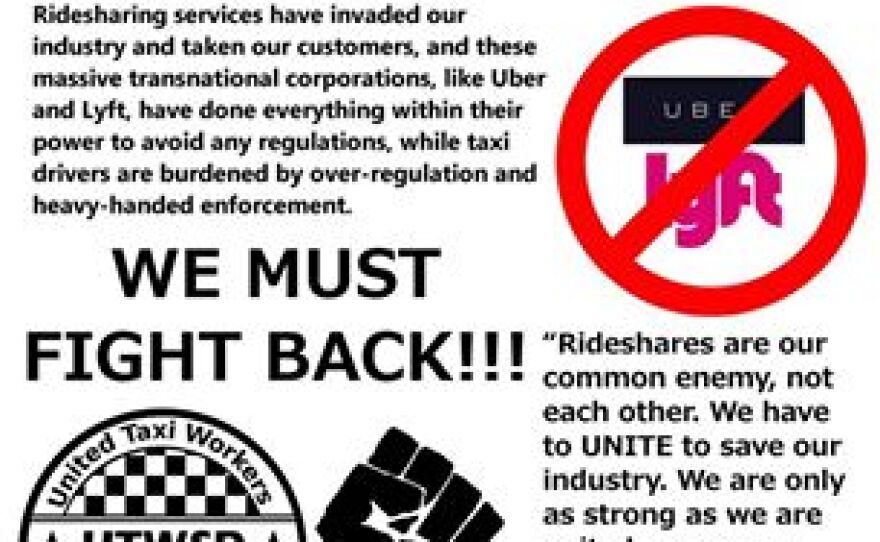The United Taxi Workers of San Diego says the cab industry is unfairly regulated compared to ride-share companies, such as Uber and Lyft, and is calling on drivers in the region to push for reforms.
In a flier uploaded to its Facebook page this month, the union urged its more than 800 members and the rest of the nearly 1,300 cabbies in the area to unite to "make the transportation industry fair for all drivers."
The taxi industry here has been fragmented since not all drivers agreed with the organization's successful push to lift the cap on taxi permits in the city back in 2014, said Mikaiil Hussein, president of the United Taxi Workers of San Diego.

The change put more independent drivers on the road, so fewer drivers are paying a high price to lease a permitted taxi, but this also increased competition, Hussein said. Since the cap was lifted, about 300 new permits have been approved, he added.
Hussein wants drivers to put these differences aside and rally against what he says is an even bigger threat to their livelihood.
"So our goal is to bring all these sectors together and understand what's our common enemy, which is unregulated industry, which is Uber and Lyft," he said.
The San Diego taxi industry is regulated by the Metropolitan Transit System, which requires drivers have at least $1 million in liability insurance, operate a zero or low-emissions vehicle and pass a criminal background check, among a list of other requirements.
The California Public Utilities Commission regulates ride-share services, also called transportation network companies, and earlier this year approved new rules, but a proposed overhaul of the agency leaves the enforcement and implementation of these changes in limbo, according to SFGate.
"PUC President Michael Picker, who in March told lawmakers the agency is overburdened and he finds himself 'underwater on a daily basis,' said that overseeing ride services is burdensome and suggested the DMV and CHP as alternatives," the San Francisco website reported late last month.
Representatives from CPUC and MTS were not immediately available to comment.
San Diego taxi union president Hussein acknowledges that the cab industry must also make changes to better compete against transportation network companies, such as improving customer service and reducing fares.
The organization is working on a list of policy suggestions for ride-share services to present to the San Diego City Council.
Councilwoman Marti Emerald, who represents City Heights and led the open taxi market measure in 2014, says the City Council may have limited authority over the matter because the City Attorney's Office has previously said regulation of the ride-share industry is in the state's hands. Emerald said she will review the proposal when it's finalized to see if anything can be accomplished at the local level.
"If there's anything we can do, I think that we should," the outgoing councilwoman said. "They're on different playing fields here."
Other cities have struggled over how to regulate transportation network companies alongside its taxi industry, including New York City and Boston.
Uber and Lyft left the city of Austin entirely after it required drivers be fingerprinted.





